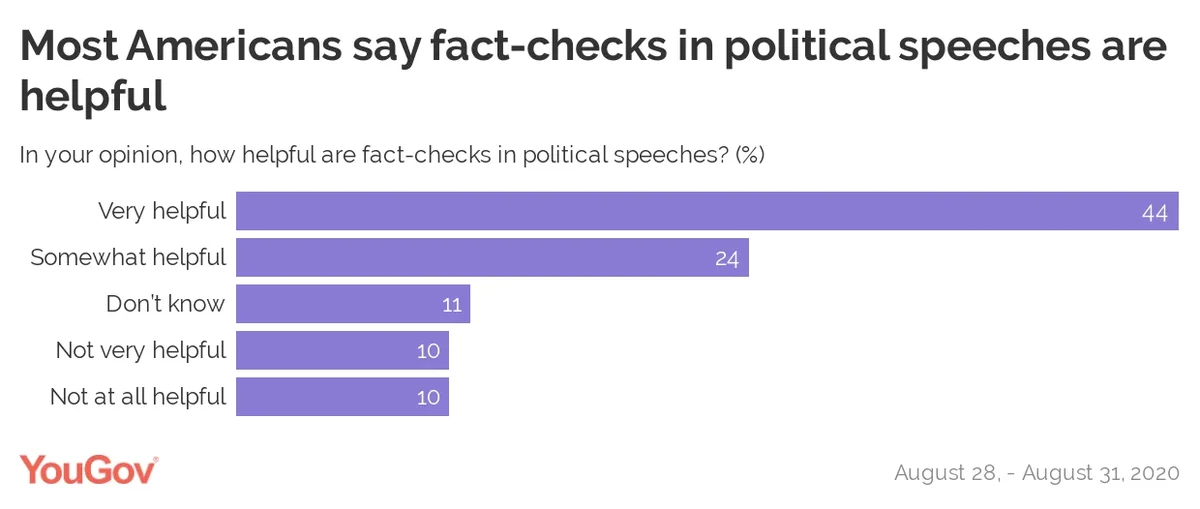Most Americans think fact-checks of political speeches are helpful, according to a recent YouGov survey. The data shows that 44 percent of Americans think fact-checks of political speeches are very helpful, while 24 percent say they are somewhat helpful. In contrast, two in 10 Americans say fact-checks of political speeches are not helpful.

But why do YouGov users feel this way about fact-checks of political speeches? We asked our Chat users to go deeper on the issue and tell us what they think. You can share your views on fact-checks of political speeches here.
“Politicians should be held accountable for the things they say. Truth is of the utmost importance.”
When we asked Chat users to tell us why they said fact-checks of political speeches are helpful, most cited the need for truth and accountability from their representatives. “Politicians must be held accountable,” stated one user. “Politicians should be expected to tell the truth and be called out for lying (or simply wrong doing) when they spread wrong or inaccurate information in their speeches,” wrote another.
Many Chat users voiced concerns about false information and frustrations over “being lied to.” “Politicians lie, some more than others, and they should be called out for their propaganda,” wrote a chat user. “We MUST hold our politicians accountable when they blatantly lie,” stated another.
YouGov Chat also asks participants to consider the other side of the debate. Users that said fact-checks are helpful said the strongest reason to say they are not is the argument that fact-checkers are biased (44%).
Of the 7,964 responses to this chat, 80 percent said they think fact-checks are helpful, while 16 percent said they aren’t.
“Everyone likes to embellish their history. Just do your own homework. Data can be manipulated, fact checkers may not always be correct either. I believe there is some bias in the fact checkers.”
Among Chat users who say fact-checks are not helpful, most voiced concerns over bias. “The sources doing the fact-checking or providing the checks are biased and that tends to skew the checking toward one candidate/ party/ ideology,” wrote a user. “Fact-checkers are corrupted and used for political ends. When they are proven wrong, there is no recourse or accountability. Many of them are very biased and used strictly for censorship,” said another.
Other Chat users stated that fact-checks are not helpful because they can do their own research. “I can make my own judgments,” wrote a user. “It is the responsibility of the individual to research the candidates and what they say. We do not need to be told what to think or what is true and what is not true,” said another.
------------------------
Everyday, members of YouGov Chat are asked to share their opinion on a topic in the news. We allow anyone to take part in these chats, and do not display or weight results in real-time. Instead, to make the experience informative but still interactive, the Chat displays weighted data from YouGov Direct to show them how the rest of the country voted. This enables us to pose the question to all, while retaining data accuracy and validity when communicating results.
YouGov Chat seeks to add to the ‘what?’ (the quantitative poll result) by finding the ‘why?” (qualitative open ends) in a member’s own words. Learn more about YouGov Chat here.
Image: Getty






